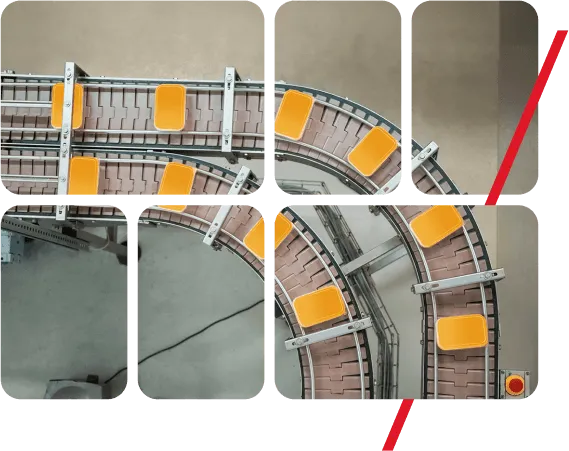The journey of The European AI Act started in April 2021, with the aim of regulating artificial intelligence (AI) technologies and systems across the European Union. The act proposes rules for the development, placement on the market, and use of AI systems in the EU, intending to protect fundamental rights while also facilitating innovation.
The act looked to face no hardships initially. Member states largely agreed on the need for regulation to ensure AI is trustworthy and human-centric. However, the legislative process hit obstacles last month during the fifth trialogue negotiation between the European Parliament, European Council, and European Commission. No consensus was reached on key issues like foundational models and proposed exemptions for high-risk AI systems. The main opponents were economic powerhouses Germany, France, and Italy – each pushing their own agendas and priorities.
This lack of agreement showcases the challenges in regulating a rapidly evolving technology like AI across 27 member states with diverse economic and strategic interests. The stakes are high, as the EU seeks to balance innovation and ethical AI while competing with other global leaders. The European AI Act is historic, as the first comprehensive legislative framework of its kind.
Key Players
Germany is the country with the biggest GDP in the EU and took issue with parts of the legislation that it felt unfairly targeted its domestic companies. As an industrial powerhouse, Germany wants to protect the interests of its manufacturing and engineering firms developing AI systems.
France pushed back on aspects of the legislation it felt were either too lenient or would stifle French AI innovation. With major investments in AI research, France wants to position itself as a leader in the European AI landscape.
Italy was the only European country to temporarily ban ChatGPT. While less influential than Germany or France, Italy still opposed parts of the legislation that would restrict AI applications or place stringent requirements on Italian companies.
EU’s Global Standing
The EU accounts for around 15% of the global GDP, rising to nearly 20% if we include European countries like Norway, Switzerland, and the UK which are not part of the EU bloc. However, despite its economic power, the EU continues to lag behind global rivals when it comes to innovation. There is a considerable gap between the EU’s world-class academic research in areas like AI, and the translation of that research into commercial products and services. For example, the EU produces around one-third of the world’s top AI research papers, but that leadership in research does not translate into leadership in the AI industry. It captures just 4% of private investment in AI, compared to over 50% in the US and nearly 30% in China.
Bridging this “innovation gap” continues to be a challenge for European policymakers. While the EU has excellence in basic research, more needs to be done to strengthen technology transfer, encourage entrepreneurship, improve access to venture capital, and create an environment where innovative European tech firms can thrive.
Bridging Research and Industry
There is a huge gap between the academic research and the industry when it comes to AI in Europe. The continent is home to some of the top universities and research centers working on cutting-edge AI, with academics publishing prolific amounts of papers. However, Europe falls short at translating this research into commercial products and services that benefit society and the economy.
Unlike countries like the US and China, Europe struggles to build an environment that fosters technology transfer and encourages startups to emerge from universities. Reasons for this include less access to private funding and venture capital, researchers not incentivized to commercialize their work, rigid bureaucracies, and fewer role models of successful entrepreneurship. As a result, promising research often remains locked up in academia instead of making its way to the market.
Bridging this gap requires a mix of government programs to incentivize commercialization, public-private partnerships, and cultural shifts in academia. Europe has tremendous potential, but unlocking the value of its world-class research via increased industry collaboration and startup creation is key to competing in AI development. Stronger links between universities and the private sector can pave the way for Europe to capitalize on its strengths.
Legislation vs Innovation
Can the slow legislative apparatus keep pace with the lightning speed of AI Tech Space?
Europe is known for its comprehensive but slow-moving legislative process. With AI technology rapidly evolving, many wonder if the bureaucratic pace of regulation can keep up.
In the past year alone, we’ve seen massive leaps forward in AI capabilities, with models like DALL-E 2, GPT-3.5, and ChatGPT demonstrating new levels of sophistication. The speed of innovation far outpaces the speed of legislation.
By the time regulations make their way through the complex European legislative bodies, the AI landscape may look completely different. What initially seemed like prudent restrictions could be obsolete, while new technologies and capabilities may emerge that lawmakers didn’t anticipate.
The risk is that innovation gets stifled under the weight of well-intentioned but sluggish bureaucracy. Researchers and companies may take their cutting-edge work elsewhere rather than deal with regulatory uncertainty and delays.
If Europe wants to compete at the forefront of AI, it needs to strike a balance between guiding ethical development and allowing room for experimentation. Keeping pace with innovation will require policymakers to take a more adaptive approach that responds swiftly to new technologies, while still upholding shared values.
The EU faces a major challenge in reconciling these priorities. But with wise governance and regulatory agility, Europe can foster AI leadership while still ensuring technology works for the benefit of society.
Are you interested in learning how to leverage AI for your business? Do you want to know the best practices and strategies for deploying AI solutions effectively and efficiently?
If the answer is yes, then you should DOWNLOAD our latest whitepaper on AI, “The Definitive Guide to AI Strategy Rollout in Enterprise.”
Europe’s Potential
While the EU may have started slowly in the tech and AI race compared to places like the US and China, there are signs of steady and sustainable growth happening across the region. Several factors point towards Europe’s potential to be a serious global player in artificial intelligence in the years to come:
Steady Growth – Europe is seeing consistent growth in its tech and AI sectors, especially hubs like London, Paris, Berlin and others. The ecosystem is maturing and scaling up in a measured way. This looks well for long-term success rather than rapid expansion and volatility.
Investments in AI – Many European countries are making major investments into artificial intelligence research, development and adoption. France in particular has seen significant public and private investment into AI companies, research centers, and technologies. The UK and Germany also spend billions on AI.
Global Talent – Europe has become a magnet for global tech and AI talent in recent years. With top quality universities and research centers, stable economies, and high standards of living, Europe is able to attract the best and brightest minds to contribute to its tech ecosystem. Major companies have research centers in Europe tapping local talent.
With these strengths, Europe is primed to be in a leading position in certain AI segments and applications. Though adoption was initially slow, strong foundations are being built for European nations to be competitive forces in the global AI landscape in the years to come.
Mistral Model Shows France’s Potential
France has emerged as a rising AI powerhouse in Europe, with major investments and advancements coming out of the country. One particularly promising development is Mistral, a France-based startup that recently open-sourced a 7B AI model that they claim is the current best in the world.
Tests have validated Mistral’s assertions, showing their model outperforms competitor models like Googles PaLM on various benchmarks. This demonstrates France’s capabilities in developing cutting-edge AI, thanks to heavy funding and a growing talent base.
Mistral’s model and progress highlights the potential for European companies to compete with US and Chinese firms in AI research. The startup was even able to attract major outside funding, with renowned VC firm Andreessen Horowitz investing over $500 million into Mistral.
France’s combination of homegrown AI talent, academic research, and willingness to financially back promising startups, has allowed companies like Mistral to thrive. If this environment continues expanding, more European and French firms could emerge as leaders in AI development, helping to close the innovation gap between the EU and other regions.
Funding
The EU has pledged significant research funding to support both legislation and innovation in AI. In 2018, the EU launched the Digital Europe Programme, allocating €7.5 billion ($8.2 billion) for 2021-2027 to boost Europe’s capabilities in AI, cybersecurity, supercomputing, and other digital technologies.
In April 2021, the EU also announced plans to invest over €1 billion ($1.1 billion) in the European AI, Data, and Robotics Partnership over the next 7 years. This partnership brings together the private and public sectors to develop cutting-edge AI that aligns with European values and ethics. The goal is to mobilize over €20 billion ($21.9 billion) in total investment across the EU.
The massive funding demonstrates the EU’s commitment to not only regulating AI through legislation but actively advancing innovation and development of human-centric AI. While regulatory oversight is crucial, the EU does not want to stifle growth and progress in this quickly evolving field.
The research funding will help strengthen Europe’s position in AI while ensuring alignment with European standards. Leading experts across academia and industry will collaborate to pioneer approaches, applications, and technologies that uphold principles of transparency, fairness, and accountability.
By coupling legislation with ample funding for ethical, trustworthy AI, the EU aims to shape the future of artificial intelligence in a responsible manner. The impact and success of this dual approach remains to be seen but signals Europe’s multifaceted strategy.
The EU AI Act, with all its nuances, is the first comprehensive legislation of its kind in the world. While the process has faced delays and disagreements, the act overall represents a significant step towards regulating AI development and use.
As the baseline for AI regulation globally, many eyes will be on the EU to see how implementation unfolds. With Big Tech unlikely to abandon the lucrative European market, the success or failure of the EU AI Act could sway other countries considering similar legislation.
We can expect other nations to follow the EU’s lead, using the act as a starting point. Some may take an even more restrictive stance, while others may aim for a more hands-off approach. But the concepts and frameworks within the EU AI Act will likely serve as a reference.
Whether the EU strikes the right balance between enabling AI innovation versus enforcing accountability and ethics remains to be seen. But by taking the plunge first, the EU has a chance to set the tone for responsible and human-centric AI deployment worldwide. The coming years will determine if Europe can leverage its unified regulatory standards as a competitive advantage in the global AI race.
Are you interested in learning how to leverage AI for your business? Do you want to know the best practices and strategies for deploying AI solutions effectively and efficiently?
If the answer is yes, then you should DOWNLOAD our latest whitepaper on AI, “The Definitive Guide to AI Strategy Rollout in Enterprise.”







































